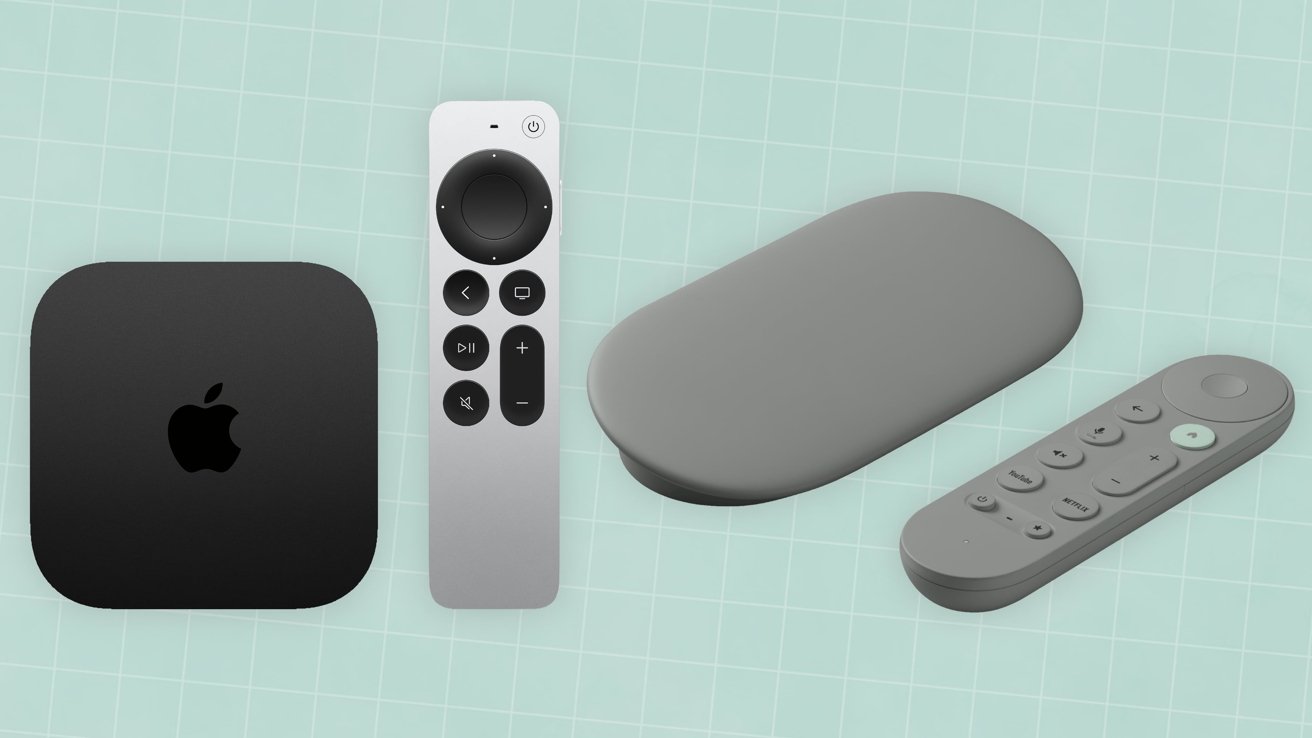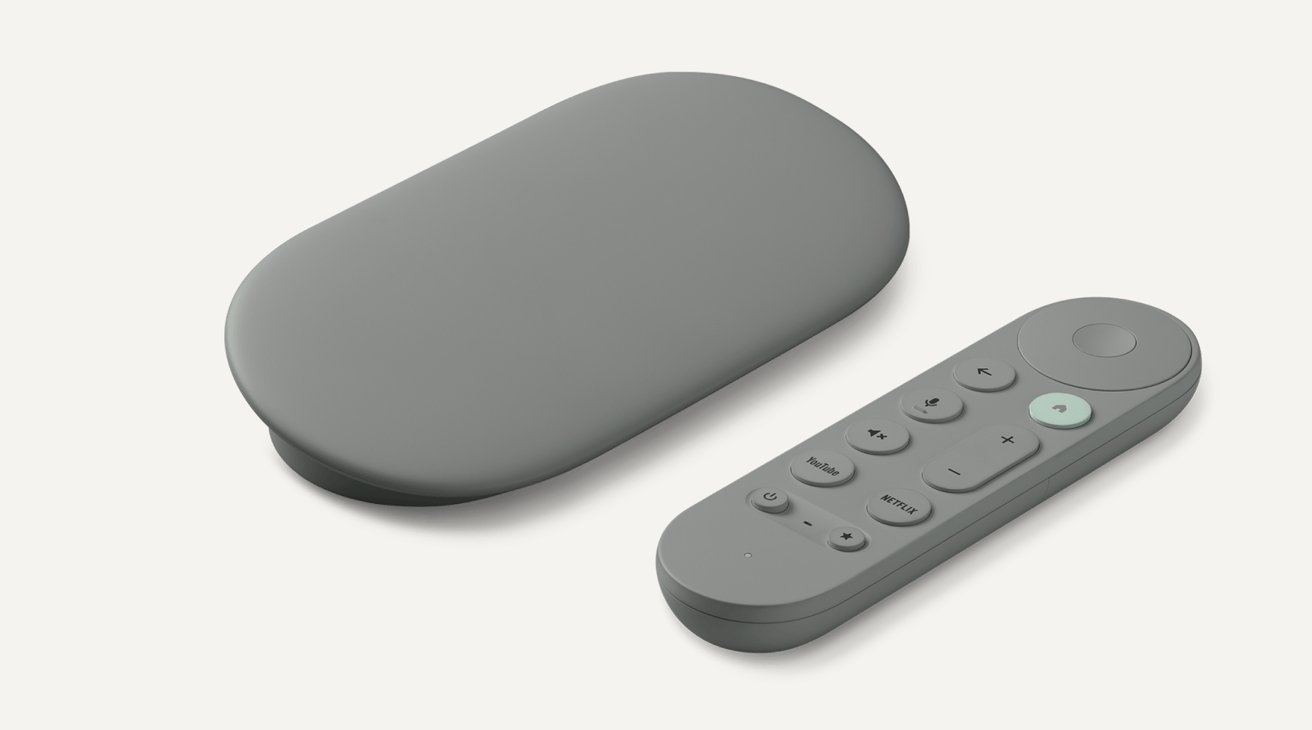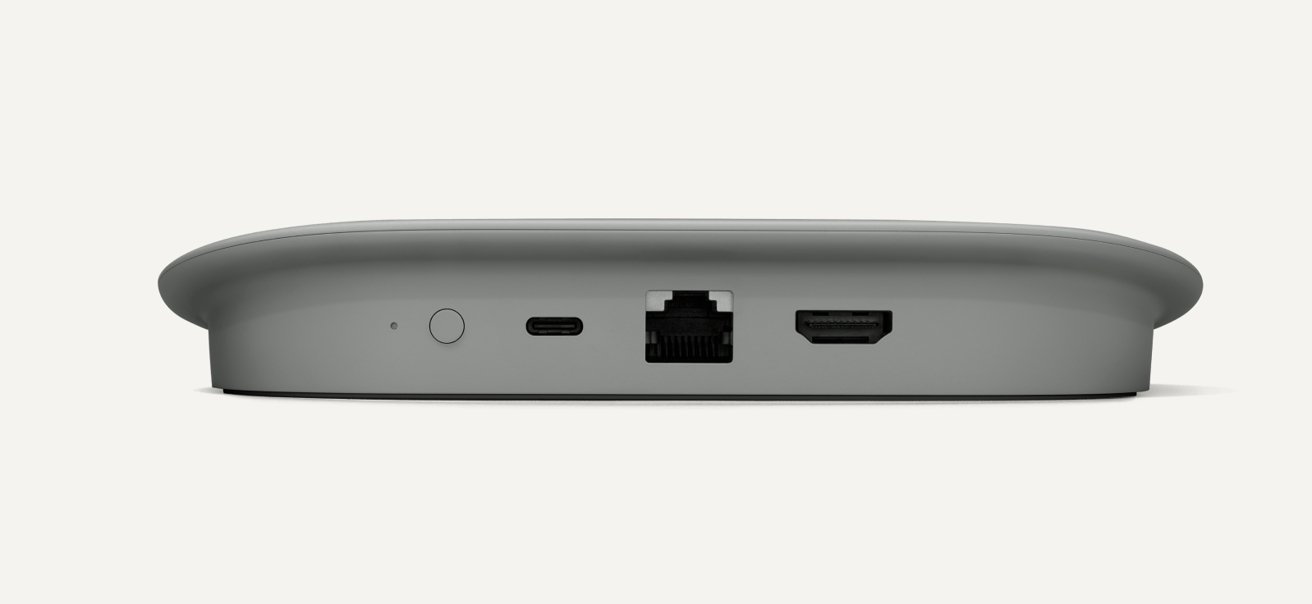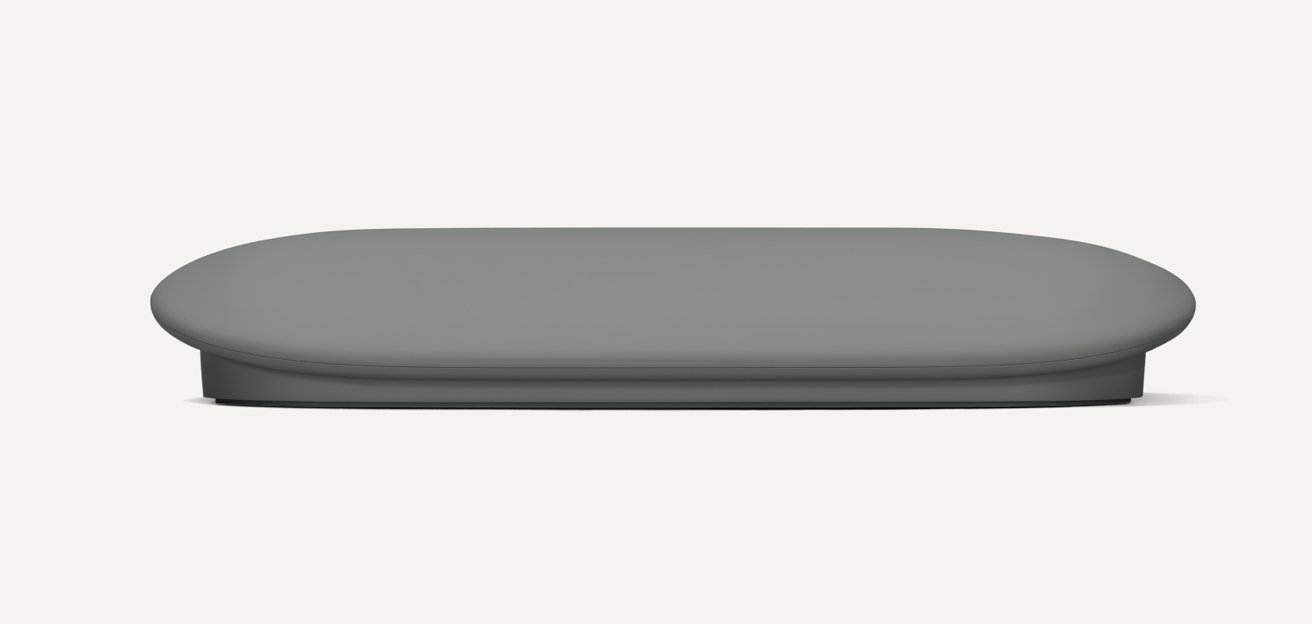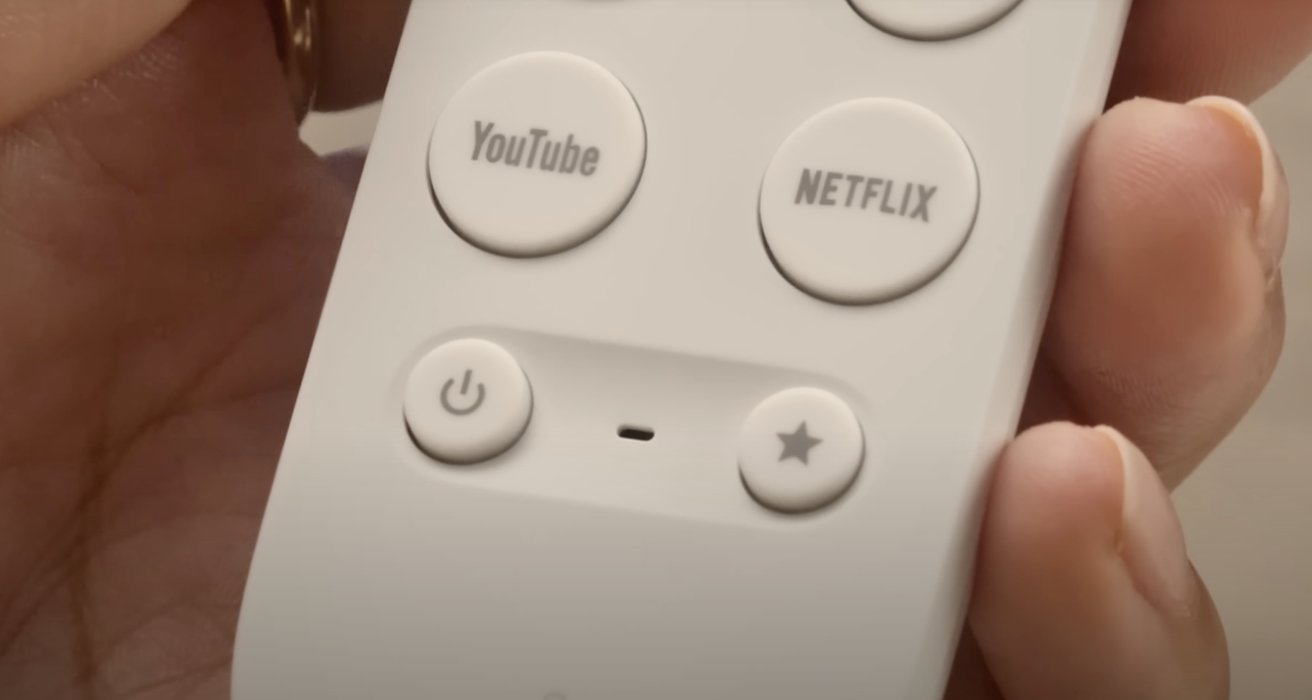Last updated
Google TV Streamer is Alphabet's updated replacement for discontinued Chromecast. Here's how it fares versus the Apple TV 4K.
The Google Chromecast has been Google's go-to solution to cheaply add smarts to a dumb TV for quite a few years. However, with the introduction of the Google TV Streamer, the dongle's time is over.
Now, Google is pushing a more premium experience, complete with a more visual set-top box design and some added AI smarts.
The Apple TV 4K is the natural opponent to the Google TV Streamer, with the two offering a fairly compelling TV-based experience.
Here's how the two match up, and whether Apple TV 4K owners should channel-flip over to Google's new offering.
Apple TV 4K vs Google TV Streamer - Specifications
| Specifications | Apple TV 4K | Google TV Streamer |
|---|---|---|
| Price (starting) | $129 | $99.99 |
| Dimensions (inches) | 3.66 x 3.66 x 1.2 | 6.4 x 3.0 x 1.0 |
| Weight | 7.3 ounces (Wi-Fi), 7.5 ounces (Wi-Fi + Ethernet) | 5.7 |
| Resolution | Up to 4K | Up to 4K |
| Capacities | 64GB (Wi-Fi), 128GB (Wi-Fi + Ethernet) | 32GB |
| Connectivity | HDMI 2.1, Bluetooth 5.0, Infrared, Gigabit Ethernet (Wi-Fi + Ethernet) Thread (Wi-Fi + Ethernet) Wi-Fi | HDMI 2.1, Bluetooth 5.1, Gigabit Ethernet, Thread/Matter, USB-C, Wi-Fi |
| Video Formats | SDR video, Dolby Vision, HDR10+/HDR10/HLG with HEVC, H.264, MPEG-4 HDMI Quick Media Switching | SDR video, Dolby Vision, HDR10+,HDR10,HLG |
| Audio Formats | HE-AAC AAC 320Kbps Protected AAC MP3 320Kbps, VBR, Apple Lossless FLAC AIFF WAV AC-3 Dolby Digital 5.1, E-AC-3 Dolby Digital Plus 7.1 Surround Sound, Dolby Atmos | Dolby Digital, Dolby Digital Plus, Dolby Atmos |
Apple TV 4K vs Google TV Streamer - Physical dimensions
The Apple TV 4K takes the usual form of a small black puck. It's certainly more unobtrusive than most other often-black hardware you'd place near a TV.
At 3.66 inches square and 1.2 inches tall, it's highly compact and can easily be hidden out of view if required. It also makes moving it to another room very easy, aside from the cables.
The Google TV Streamer goes down the opposite route, of being a very obvious device. It's a wedge shape with an oval on the top, in a choice of Hazel or Porcelain.
Google describes it as having "a sleek design that fits right into your home's decor without standing out." If you have a minimalist home and pebbles as decoration, possibly, but not if you put it next to a stash of game consoles and home theater hardware.
At 6.4 inches long, 3 inches wide, and an inch thick, it's certainly a lot bigger than the Apple TV 4K.
While bigger, it's not as heavy. The Google TV Streamer is 5.7 ounces, versus 7.3 ounces to 7.5 ounces, depending on the Apple TV 4K variant.
Apple TV 4K vs Google TV Streamer - Varieties and connectivity
Apple offers two versions of the Apple TV 4K, which are available as a Wi-Fi model and as a Wi-Fi + Ethernet version. The former has Wi-FI connectivity to the network, is lighter, and has a 64GB capacity.
The Wi-Fi + Ethernet version adds in Gigabit Ethernet, but also Thread support and a higher capacity of 128GB.
The Google TV streamer only has one capacity option, at a disappointing 32GB. Evidently, it's expected that users will not be installing that much to the device.
Both device families have HDMI 2.1 connectivity, though Bluetooth is 5.0 on Apple's hardware, 5.1 on Google's box. Apple does also include infrared connectivity.
The Google TV Streamer also has a USB-C connection. This is primarily to supply power, but it can also be used for data transfers. Apple uses a more traditional power-only connection.
Apple TV 4K vs Google TV Streamer - Video and audio support
Both the devices are listed as supporting standard definition video, as well as Dolby Vision, HDR10, HDR10+, and HLG. Apple specifies the support of HEVC for the latter three.
Apple also goes further and lists support or H.264 video, MPEG-4, and HDMI Quick Media Switching.
On the audio side, both product families list support for Dolby Digital, Dolby Digital Plus, and Dolby Atmos.
Again, Apple adds more to the list, including HE-AAC, AAC, Protected AAC, MP3, Apple Lossless, FLAC, AIFF, and WAV.
We don't know if the Google TV Streamer can handle any of these extra formats and if Google just wanted to simplify its specifications list. But if not, it would mean the Apple TV 4K is more robust in what it is capable of playing to end users.
Apple TV 4K vs Google TV Streamer - Content choice and AI smarts
The Apple TV 4K is an app-based streaming device, which means that as long as there's a streaming app for a service, it can be installed and used. Given the sheer amount of time the Apple TV has been around for, and the short development leap from iOS to tvOS, there's a considerable library to go through.
It's a somewhat similar situation for the Google TV Streamer, as you can install a wide variety of apps made to be compatible with the Android TV operating system. Google adds that there is also over 800 free-to-stream TV channels available as well.
This is at least for viewing content. Apple also includes functionality such as access to the iCloud Shared Photo Library, Apple Arcade and games, Apple Music, and Apple Fitness+ workouts.
You could feasibly install apps that do similar things on the Google TV Streamer, though it does include the ability to view photos in a user's Google Photos library.
To help users find what they may want to watch, Google TV Streamer uses the company's AI systems to curate content across all of the user's subscriptions.
The Apple TV app can do a similar job, providing a slew of content for a user to watch from connected apps. However, the app developers must allow the Apple TV app to actively do this in the first place.
Google further adds that the use of its Gemini technology will offer full summaries, reviews, and seasonal breakdowns of content to watch. This does somewhat automate the summaries, but manually-created catalog versions also work fine on the Apple TV.
Continuing the Chromecast's legacy, if you don't have the ability to view the right content on the TV by using the Cast function with the Google TV Streamer. Likewise, you can also share your iPhone screen with the Apple TV using AirPlay.
Apple TV 4K vs Google TV Streamer - Smart home
In both devices, there are capabilities for each to be used as a smart home hub.
The Apple TV 4K works with HomeKit to manage a smart home's devices and automation. In the case of the Wi-Fi + Ethernet model, it can also directly connect using Thread to other hardware that supports Matter.
Likewise, the Google TV Streamer works as a smart home hub under Google's own framework, Google Home. Again, Thread support is there, so it will work with supportive hardware.
Apple TV 4K vs Google TV Streamer - Remotes
Both Google's included Voice Remote and Apple's Siri Remote (Gen 2) offer the same sort of base functionality and controls. To the top is a round section used to navigate the TV interface, along with volume and other playback controls.
Each remote also allows you to talk to the respective set-top boxes instead of using an on-screen keyboard. The Voice Remote does differ in that there is a customizable button, allowing one-touch access to your favorite app.
Each system also has the ability to help you find the remote if it's lost. Google lets you ask the Google Assistant to "find my remote" or to press a button on the back of the box to make the remote beep out loud.
Apple instead gives a more visual approach to relocating the remote. After accessing the Apple TV Remote in iOS 17 on an iPhone, you can find the remote by following an on-screen circle, which will shrink and grow depending on how far away you are from the missing controller.
Apple TV 4K vs Google TV Streamer - Pricing
The Apple TV 4K with Wi-Fi and 64GB of capacity is priced at $129.99. The Wi-Fi + Ethernet version with 128GB of capacity is $149.99.
Google is selling the Google TV Streamer with a 32GB capacity for $99.99.
Apple TV 4K vs Google TV Streamer - Which to buy
It's obvious to everyone involved that the choice of set-top box will largely revolve around the rest of your hardware ecosystem. If you are primarily Apple-based, the Apple TV 4K is the logical choice, and likewise, the Google TV Streamer is best for those mainly using Android.
Ecosystems aside, there is a fair bit of difference at play here, and a lot of it is to Apple's benefit.
The Google TV Streamer certainly has the same sort of streaming content available to it as the Apple TV 4K. It has similar smart home credentials, and even a bit of AI smarts too.
But it's the rest of the package that's not entirely on its side.
Google's assertion that its set-top box will fit into your living room doesn't work unless you're a devotee of Marie Kondo. Most regular below-TV hardware setups consist of black boxes, and the Apple TV 4K blends into near invisibility in that scenario.
There's also the feeling that the Google TV Streamer leans towards passive viewing than the Apple TV 4K. Apple at least promotes gaming functionality and the ability to work out, whereas Google opts for just watching shows.
The Google TV Streamer may well still offer other activity options at some point, but certainly not at launch.
Where the Google TV Streamer does win is in pricing, as it's $30 cheaper than the cheapest Apple TV 4K, yet still offers Thread and Ethernet. Then again, $30 isn't that much of a difference when that's basically three months of a streaming TV subscription.
From this viewpoint, the Apple TV 4K has little to worry about from the Chromecast replacement for nearly every Apple user.
